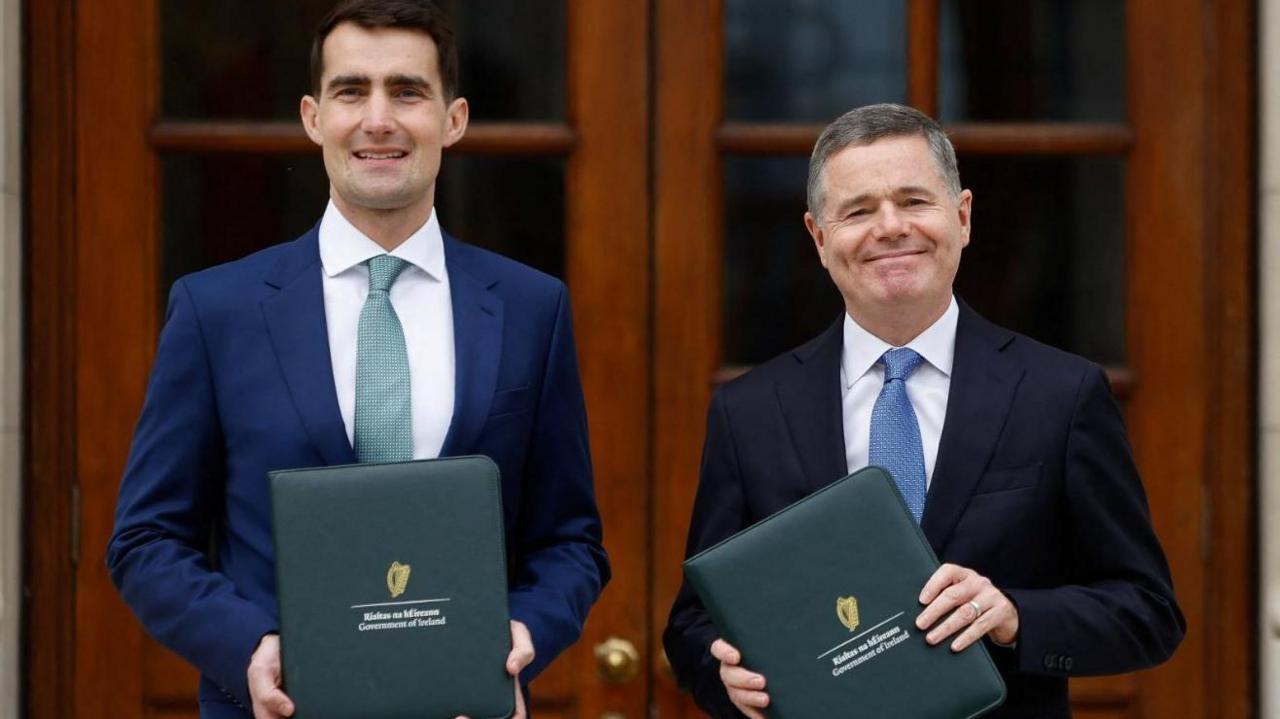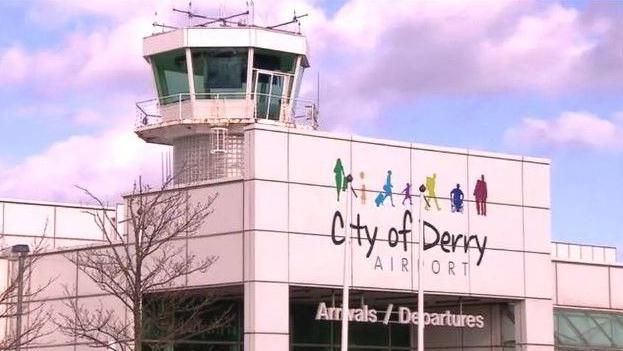Irish government to divert billions of extra euros to savings funds

Minister for Public Expenditure Jack Chambers and Finance minister Paschal Donohoe showcase the budget documents in the courtyard of the Government Buildings in Dublin
- Published
The Irish government is planning to divert billions of extra euros to national long-term savings funds amid concerns about future multinational corporation taxes.
Details of the additional funding were announced in the budget presented to the Dáil (lower house of Irish parliament) by the country's Minister for Finance Paschal Donohoe.
Donohoe said the government acknowledges a risk to the Irish economy by an over-reliance on corporation tax receipts during a period of "considerable uncertainty".
Corporation taxes from foreign owned multinational companies have brought huge economic benefits to the country in recent decades.
'Protecting future generations'
The minister said corporation tax revenues had "allowed us to respond to challenges, such as the pandemic, and the cost-of-living challenge".
However, he added that "we all know the degree of volatility in these receipts, we know over-reliance is a risk".
Donohoe explained that the future Ireland and infrastructure, climate, and nature long-term savings funds will have built up to about €24bn (£20.8bn) by the end of 2026 and more than €40bn (£34.7bn) by the end of the government's term of office, around the end of the decade.
The minister explained that these long-term funds will "help us deal with the demographic and the structural challenges that may await, and the challenges we may not yet be aware of".
He said it will be an investment "to protect future generations".
The imposition of US tariffs has brought a renewed focus on the Irish economic model which has a high reliance on major US companies based across the country.
Donohoe said the additional investment in the national long-term savings funds "will allow us to face the challenges of the future from the best possible position".
The Irish government announced a number of measures on Tuesday, including:
Committing more than €5bn (£4.34bn) in capital investment for housing delivery next year
Increasing the national minimum wage by €0.65 per hour to €14.15 (£12.29) per hour, from January 2026
Reducing the VAT rate on the sale of completed apartments to 9% from 13.5%, from tonight until the end of December 2030
Increasing funding for the Department of Defence by 11% to €1.49bn (£1.29bn) next year
A reduction in the VAT rate for food and catering businesses and hairdressing services from 13.5% to 9% from 1 July next year
Related topics
- Published7 October

- Published27 July
